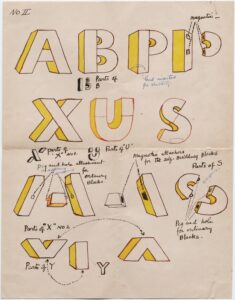“Modernist Poetics: New Genealogies
of ‘Making the Work’ in Modernity”
Seminar for “Making Modernism”
Modernist Studies Association
Portland, Ore., 27–30 October 2022
NOTE EXTENDED DATE FOR SEMINAR REGISTRATION
AUGUST 31: REGISTRATION HERE
Seminar led by Barrett Watten, Wayne State University
and Herman Rapaport, Wake Forest University
with invited guest Lyn Hejinian, UC Berkeley
Seminar prospectus (to enroll see below)
This seminar takes up the conference rubric, Making Modernism, as a question of “poetics”—a discourse of “making the work.” Poetics may either immanent to a modernist work of art or a supplement to it; it is an aesthetic or theoretical reflection that offers a blueprint for how the “work” is made and how to read it. Poetics may take the form of a separate instance of writing, a preface or explanatory essay external to the work of art, or it may be described or enacted in the work itself, as a set of instructions to the reader on how work may be read. In this seminar, we will seek new ways of understanding modernist poetics, at or beyond the epochal date of 1922, as a response to the crisis of modernity. Modernist poetics is often characterized as “formalist,” after avant-garde manifestos, the New Critics, or the Russian Formalists. For this inquiry, Eliot’s “Notes” to The Waste Land and his editorship of The Criterion would be as important for modernist poetics as the poem itself. Extending this principle, Joyce’s turn to writing “Work in Progress” and its serial publication in transition from 1927 on would depart from the modernist masterpiece into another kind of writing; Stein’s “Composition as Explanation” (1926) would supplement the publication of Geography and Plays (1922); and McKay’s development of vernacular prose romances from Home to Harlem (1928) to Banana Bottom (1933) would augment the formal poetics of Harlem Shadows. After 1922, a reflection on the “making of the work” emerges in numerous works of poetics that address the modern present and its “condition of possibility.” Such a deliberate inquiry into the making of the modernist work motivates the prose/poetry dialectic of William Carlos Williams’s Spring and All (1923); it is found in the self-reflexive explorations of women authors such as Mina Loy, Marianne Moore, Laura Riding, and Djuna Barnes; it extends to the social discourses on poetics in the Harlem Renaissance and the Popular Front; it is everywhere in the manifestos of the avant-garde, especially surrealism; it appears in the turn to fascism in Ezra Pound and Wyndham Lewis; it is central to key works of Critical Theory such as Walter Benjamin’s “The Author as Producer” and Theodor Adorno’s many writings on modernism. This seminar invites literary, historical, cultural, and theoretical inquiry into works broadly seen as “poetics” in modernism. What will count as a key work in modernist/modern poetics is the task of participants to determine; our aim is to establish a broad and productive series of works that represent the aesthetic, cultural, political, and critical “making of the work” under conditions of modernity. In so doing, it seeks a broad discussion on modernist poetics in line with our earlier work on contemporary examples in A Guide to Poetics Journal and Poetics Journal Digital Archive (Wesleyan UP).
Seminar format and enrollment
In the MSA format, participants circulate 5-pp. papers for discussion in advance of the seminar, which everyone reads. The two-and-a-half-hour seminar takes up from the written texts as a collective discussion moderated by the organizers. Enrollment is first come, first served, capped at about 15, in addition to invited guests and organizers. It will take place in real time and space at the MSA meeting in October; conference participants not enrolled in the seminar will be welcome to attend as auditors. Further discussion from the MSA site:
MSA members sign up for seminars during conference registration by selecting up to three seminars (ranked in order of preference); members are placed in a seminar according to their ranking and available space. Most seminars have a cap (usually 15, including the leader[s] and any invited participants) . . . . The seminar registration period typically closes about a month after registration opens.
In advance of the seminar meeting at MSA, participants produce short papers in response to the seminar topic description and share them with the entire group through whatever mechanism the seminar leaders devise. All participants are to read all of the participants’ papers—a process that aims to ensure careful and significant dialogue on the topic. Seminars take place at MSA in blocks of two hours and thirty minutes. Typically, the first two hours are devoted to specific discussion of the topic by seminar participants and the final thirty minutes typically allow room for questions, general discussion, and/or participation of auditors, if relevant.
For the conference site and program, click here; to register, click here; for all seminars, click here.
Notes and links
Image: Mina Loy, untitled drawing (magnetic letter example), c. 1941, The Beinecke Library.
Contact barrett.watten@gmail.com for more information.













